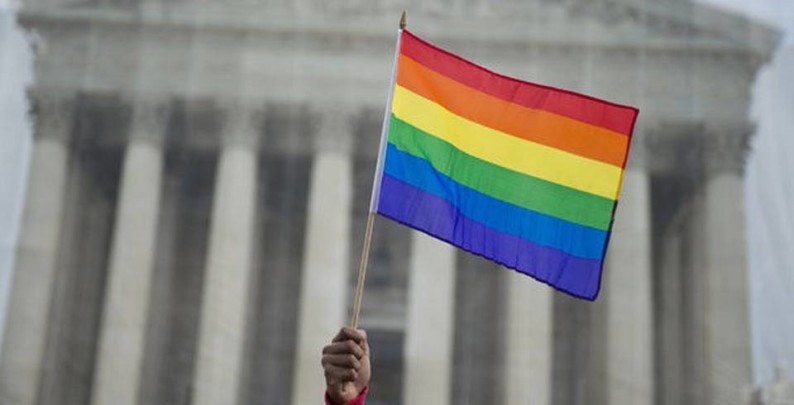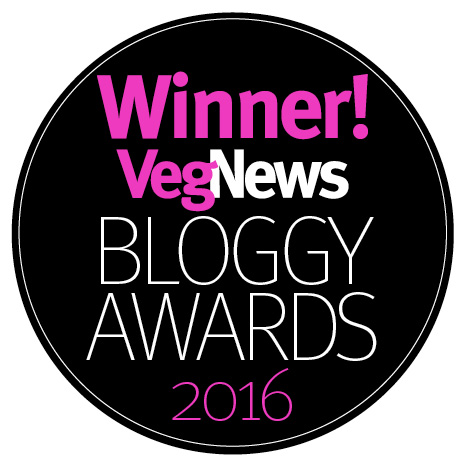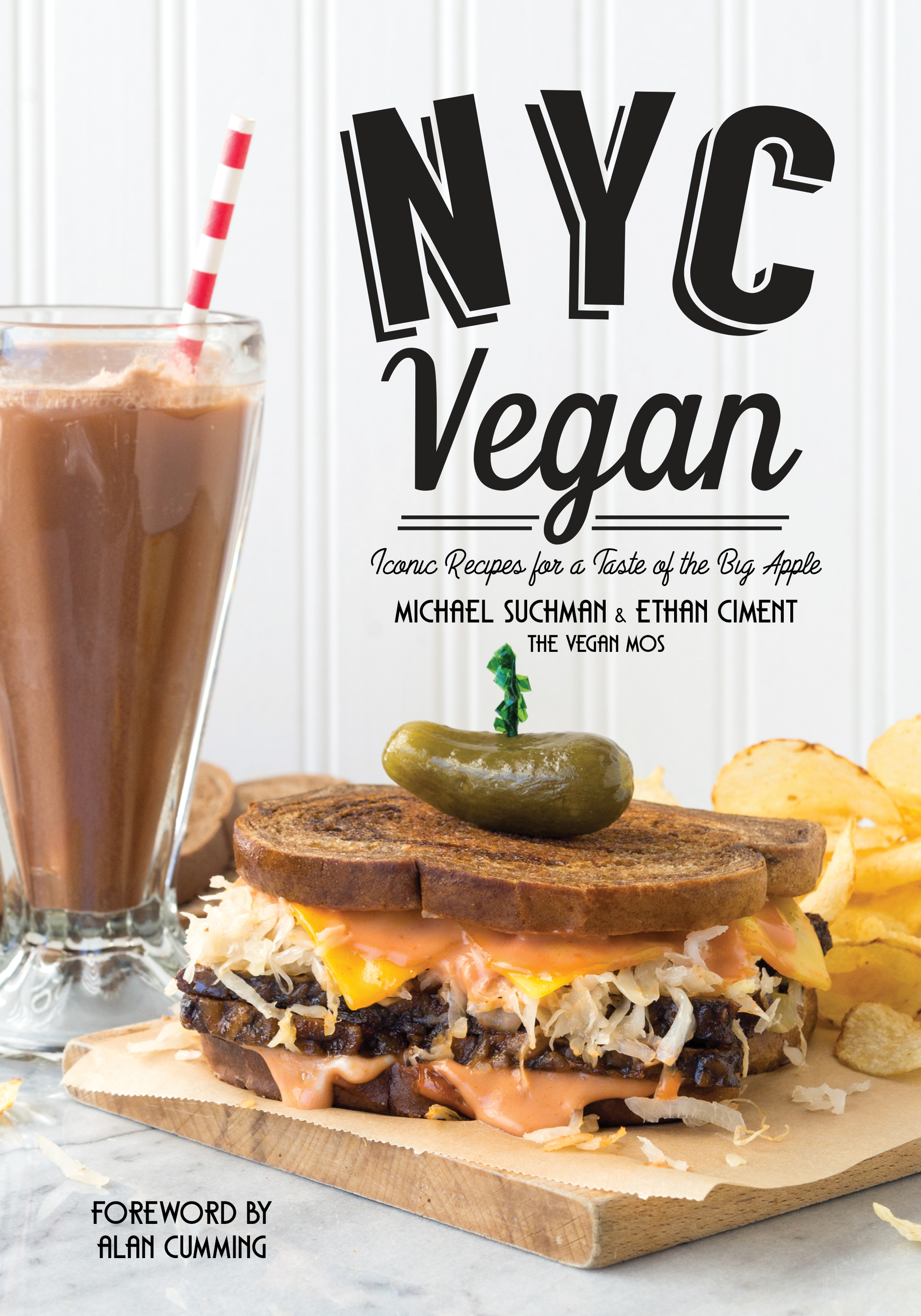Today, The Supreme Court of the United States issued its ruling in the case of Obergefell v. Hodges, effectively making marriage equality the law of the land. As someone who came out in the early 1990’s, the reality of today’s ruling was something I always hoped for, but never allowed myself to expect. It’s been quite a struggle for us to gain this equal right. Because of the litany of so-called “Defense of Marriage” Amendments to various states’ Constitutions, it often seemed more likely than not, that marriage equality would exist for some, but not all Americans. Nine years ago, marriage equality was not available to Michael and me in New York. We had to travel to Canada to be legally married. While we are forever grateful to our progressive neighbor to the north for affording us this right, it still stings that we had to leave our home, our country, to secure this basic human right.
Those days are now over! We should celebrate! What we’ve accomplished- and in such a short time- is remarkable! We have prevailed in our struggle for marriage equality against a well-organized, vehemently homophobic grassroots movement in America that has stopped at nothing to try and strip those of us in the LGBTQ community of our basic civil rights, will likely continue to do so. However, in our well-deserved celebration of this epic milestone in the expansion of civil rights in America, let us not forget that the struggle for full social equality for LGBTQ Americans continues. There currently exist no Federal protections for LGBTQ Americans from discrimination in critical areas such as employment, housing, credit opportunity and public accommodation. Violence against LGBTQ Americans is up in 2015, particularly against our trans brothers and sisters. Last year, 90% of all anti- LGBTQ hate crime homicide victims were people of color and nearly three-quarters (72%) of these homicide victims were transgender women. More than two-thirds (67%) were transgender women of color*.
In historical terms, the victorious civil rights struggle for LGBTQ marriage equality has been one of the fastest-evolving social justice movements in recorded history. Harvey Milk was right when he insisted, “Gay brothers and sisters, you must come out…once and for all, break down the myths. Destroy the lies and distortions.” By coming out in our own individual communities, families and workplaces, we became visible. As long as gays and lesbians were invisible abstract concepts, we didn’t warrant attention or consideration. But, when that maligned LGBTQ person changed from being an abstract stranger to a known individual- your child, parent, neighbor or co-worker- the issue became personal and people in the unaffected majority started to pay attention.
From the early 1990’s and through the first decade of the 21st century, as many big-named celebrities, along with more of us everyday folks came out, it helped promote tolerance and advance public opinion of LGBTQ persons. Still, this had little effect on our rights. It was only when we organized and threw our efforts and our “pink dollars” behind institutions like Freedom to Marry, Lambda Legal, HRC as well as local and state-based organizations, that the series of legal challenges in the courts began to yield meaningful and lasting changes to our actual rights.
As an animal rights activist, I feel strongly that there are important lessons to be learned from the marriage equality movement. Just as with the LGBTQ civil rights movement, we must come out to everyone we know as vegans and as animal rights advocates. The animal victims are voiceless. We must be their voices. They are hidden away out of sight from most consumers so we must make them visible. This is where farm animal sanctuaries play a crucial role. They allow us to come face to face with the few lucky survivors of the savagely brutal industrialized food system. I was already a committed vegan of over 3 years before I visited my first farm animal sanctuary and the experience changed me forever. When people would ask me why I was vegan, I would always say I was “vegan for the animals”. After meeting the individual animals, each with unique personalities and stories of neglect and abuse, it was suddenly personal. I was no longer vegan for “the cows” or “the goats”. I was vegan for Dylan and for Fern. It’s also the reason I have become more involved with Woodstock Farm Animal Sanctuary most recently committing to serve on its board of directors.
While we can change change hearts and minds through coming out and personalizing our advocacy, this alone will not change the world for animals. We must change the laws that govern their rights and codify our beliefs and values as a society. We must employ aggressive legal strategies to secure meaningful animal rights that go beyond modest improvements in their welfare. However, a crucial distinction exists between advocating for LGBTQ rights and animal rights: as LGBTQ persons, we are individual subjects of discrimination and therefore have legal standing to challenge laws on our own behalf. Until very recently, it has been impossible for human beings to bring legal challenges on behalf of animals for two main reasons: the courts have not recognized animals as individuals with legal rights; and, as non-aggrieved parties, human beings have not had the legal standing to challenge laws regarding animals. This changed last month when The Non-Human Rights Project successfully won a petition for a writ of habeus corpus from the Supreme Court of the State of New York on behalf of Hercules and Leo, two chimpanzees being held at a biomedical research facility. As a community committed to changing the world for animals and ending their use and oppression, we ought to be throwing our resources behind these type of organizations who are striking at the core of what governs our societal relationships: The law.
Winning marriage equality for LGBTQ Americans helps restore my faith in our legal system and fills me with optimism for our future as a nation of laws. I can envision a world where all animals, human and non-human alike, will be recognized as the sentient individuals they are, each endowed with rights to live their lives free from oppression and harm. If each of us plays our part by coming out, making the animals visible and heard, and supporting the groups challenging our laws for their basic individual rights, I am confident that we will again be victorious.




